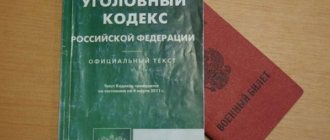Home / Situations
Back
Published: March 14, 2020
Reading time: 7 min
1
1636
In everyday life, we quite often come across profanity, which is used by others. Its use is an illegal act, since it violates the honor and dignity of a particular person and expresses disrespect for the moral and ethical standards that operate in society. The use of obscenities is unacceptable in written or oral form.
Few people know that swearing can result in not only social reprimand, but also administrative liability in the form of a fine. According to current legislation, swearing is classified as hooliganism.
- What is checkmate
- What is the offense of using obscene language in a public place?
- Administrative responsibility for swearing in a public place
- Swearing at a specific person
- Insulting a government official while performing his duties
- The procedure for proving a violation and bringing to justice for obscene language. What difficulties may arise?
- Initiating and proving cases of using profanity in a public place
What is checkmate
Obscene language, or swearing, is part of the vocabulary of the Russian language, which contains obscene and rude expressions. Mat is often used in the position of representatives of the social bottom - citizens who are prone to antisocial behavior. Swearing can be used without address, and then it refers to a spontaneous reaction to the resulting stress, a kind of emotional interjection. But it can also be used when trying to insult another person.
Swearing is expressions that are condemned by the public and insult the interlocutor, belittling his dignity.
What is the offense of using obscene language in a public place?
Swearing in itself is not prohibited and is not an offense. But this is relevant as long as the swearing does not affect the rights of other persons. In the latter case, swearing becomes an administrative offense. The norms of the Code of Administrative Violations (CAO) prosecute swearing in a public place and swearing that is used to insult a person.
A violation is swearing not only verbally, but also in the media, since in this case it can violate the rights and legitimate interests of citizens and a wide audience of readers.
Responsibility for swearing comes on the basis of the following norms of the administrative code:
- Article 20.1. Petty hooliganism.
- Article 5.61. Insult.
Punishment for swearing includes a fine of up to 5 thousand rubles. Compensation for harm is made in monetary form, and its amount is determined by the court depending on the degree of moral suffering caused, as well as the degree of guilt of the offender.
Law and order in society
In a rule-of-law state, respect for the rights of citizens is guaranteed by the Constitution of the Russian Federation - the fundamental law followed by all legal systems - civil legislation, administrative, criminal. The norms of each of these legal systems, in order to protect the interests of citizens, fight against violators of law and order, that is, those principles and rules adopted at the state level that are appropriate in the civilized world.
Legal order provides a system of social relations that arise between people, promotes the achievement of legality and suppresses violations of the law. This order excludes arbitrariness and disrespect for fellow citizens, and maintains the necessary comfort of social relations with the help of laws that are obligatory for all people.
The legislation of the Russian Federation does not provide the exact term of public order. We can say that in meaning it is similar to the rule of law, but it is governed not only by legal laws, but also by norms of generally accepted behavior, discipline, morality and ethics. This is an established system of relations between people, based on mutual respect and rules of community life, dictated by long-standing traditions and stages of development of the state. By not following the rules of such a system, a person may be held accountable.
Violations of public order always involve inconvenience to other citizens. Thus, their rights to rest, silence, work, and comfortable living are not respected. Examples of such behavior include screaming on the street at night, breaking windows in cafes, schools, shops, and vandalizing counters at markets and fairs.
Screams and damage to property in a separate residential area cannot be considered a violation of public order, since housing is not a public place within the meaning of the law. Such places will be considered streets, parks, catering establishments, hospitals, public gardens, public transport, adjacent areas of high-rise buildings, that is, places where people who are strangers to the offender are located. Territories that are used as individual property and access to which is closed to other persons are not public places - for example, a private garden of a household.
According to Russian legislation, a violator of public order can be prosecuted, first of all, under the criminal or administrative codes of the Russian Federation .
In addition, each region may have its own codes of administrative offenses or laws, according to which fines may be imposed on the violator for certain illegal actions directed against public rules.
Administrative responsibility for swearing in a public place
According to the Administrative Code, swearing in a public place is regarded as petty hooliganism. Based on Part 1 of Art. 20.1 of the Administrative Code, petty hooliganism is understood as a violation of public order, which is expressed in disrespect for society and is accompanied by pestering people, obscene language, destruction and damage to property. Harassment in a public place is characterized by intrusive and impudent actions of hooligans who cause moral and physical harm to a stranger.
Subjects of the Russian Federation are given the opportunity to resolve liability for swearing on their own. That is, such entities have the right to introduce regional laws that will increase penalties for obscene language.
According to the norms of Part 1 of Art. 20.1 of the Code of Administrative Offences, swearing in a public place threatens the violator with an administrative fine in the amount of 500-1000 rubles. or administrative liability in the form of arrest for up to 15 days.
If, in addition to obscene language, a person was involved in disobedience to the legal demands of a government representative or a person performing law enforcement duties, then a fine under Part 2 of Art. 20.1 of the Code of Administrative Offenses increases to 1-2.5 thousand rubles. These are, for example, situations where a law enforcement official tried to reason with a hooligan, but received a portion of obscene insults directed at himself. Under this provision, administrative arrest for up to 15 days is also possible.
For the dissemination on the Internet of information expressed in an indecent form that offends human dignity and morality, under Part 3 of Art. 20.1 of the Administrative Code faces an administrative fine of 30-100 thousand rubles. If this offense is committed again, it will result in a fine of 100-200 thousand rubles. according to Part 4 of Art. 20.1 Code of Administrative Offences. If a person commits these actions more than twice, then the penalties for him will be 200-300 thousand rubles.
About everything specified in paragraphs 3-5 of Art. 20.1 of the Administrative Code, violations must be notified to the prosecutor's office within 24 hours.
Article 20.1. Petty hooliganism
Resolution of the Supreme Court of the Russian Federation dated May 20, 2019 N 87-AD19-7 Judge of the Supreme Court of the Russian Federation Nikiforov S.B., having considered the complaint of Sazhin S.V. on the decision of the UUP OP-1 of the Ministry of Internal Affairs of Russia for the city of Kostroma dated February 12, 2021, the decision of the judge of the Leninsky District Court of the city of Kostroma dated April 16, 2021, the decision of the judge of the Kostroma Regional Court dated May 24, 2021 and the resolution of the chairman of Kostroma regional court dated October 25, 2021, issued against Sergey Valerievich Sazhin in the case of an administrative offense under Part 1 of Article 20.1 of the Code of the Russian Federation on Administrative Offences,
Appeal ruling of the Judicial Collegium for Criminal Cases of the Supreme Court of the Russian Federation dated August 13, 2019 N 66-APU19-16
Notes that the case contains documents on the administrative detention of Kudri (vol. 8, pp. 157, 158). The protocol was drawn up on April 24, 2018 at 17:55. for committing an administrative offense under Part 2 of Art. 20.1 Code of Administrative Offenses of the Russian Federation (petty hooliganism). However, from the testimony of FSB officer S., it follows that on April 24, after an inspection of the house, which ended at 2:50 p.m., Kudrya was taken to the department and was not at large. It is not clear where he could have committed petty hooliganism.
Resolution of the Supreme Court of the Russian Federation dated May 27, 2019 N 59-AD19-2
Judge of the Supreme Court of the Russian Federation Nikiforov S.B., having considered the complaint of Panshin S.Ya. on the decision of the local police commissioner of the UUP and PDN department of the Ministry of Internal Affairs of Russia "Blagoveshchensky" dated May 14, 2021 N 1372 AO 28008263 PO, the decision of the judge of the Blagoveshchensk City Court of the Amur Region dated July 6, 2021, the decision of the judge of the Amur Regional Court dated 28 September 2021 and the resolution of the Deputy Chairman of the Amur Regional Court dated November 22, 2021, issued against Stanislav Yanovich Panshin in the case of an administrative offense under Part 1 of Article 20.1 of the Code of Administrative Offenses of the Russian Federation,
Determination of the Constitutional Court of the Russian Federation dated October 26, 2017 N 2478-O
As follows from the presented materials, the decision of the court of general jurisdiction E.S. entered into legal force. Sizikov was found guilty of committing an administrative offense under Part 2 of Article 20.1 of the Code of Administrative Offenses of the Russian Federation (minor hooliganism involving disobedience to the legal demand of a government official or other person performing duties to protect public order or suppressing a violation of public order). As the courts indicated, authorized officials complied with legal requirements when drawing up a protocol on an administrative offense; the time difference between the official drawing up the protocol and the moment the applicant familiarized himself with this protocol, explaining his rights and obligations to him did not violate the right to defense; no comments were made the applicant did not respond to the protocol.
Resolution of the Supreme Court of the Russian Federation dated November 9, 2017 N 78-AD17-23
Judge of the Supreme Court of the Russian Federation S.B. Nikiforov, having considered the complaint of Andrey Aleksandrovich Khonin against the ruling of the Deputy Chairman of the St. Petersburg City Court dated March 28, 2021 to terminate the proceedings on the complaint, issued in the case of an administrative offense provided for in Part 1 of Article 20.1 of the Code of the Russian Federation on administrative offenses in relation to Andrey Aleksandrovich Khonin,
Appeal ruling of the Judicial Collegium for Administrative Cases of the Supreme Court of the Russian Federation dated December 18, 2019 No. 19-APA19-22
5. Placing advertisements and other information that is not advertising in places not intended for these purposes, as well as unauthorized application of drawings and inscriptions on improvement objects, not subject to Article 20.1 of the Code of the Russian Federation on Administrative Offences, shall entail a warning or imposition an administrative fine for citizens in the amount of five hundred to one thousand rubles; for officials - from one thousand to ten thousand rubles; for legal entities - from five thousand to fifty thousand rubles.”
Determination of the Constitutional Court of the Russian Federation dated February 27, 2020 N 312-O
Article 319 of the Criminal Code of the Russian Federation is aimed at protecting both the order of management and the dignity of the individual, which establishes criminal liability for public insult of a government official during the performance of his official duties or in connection with their performance (Determination of the Constitutional Court of the Russian Federation dated December 19, 2021 N 2870 -ABOUT). The signs of this crime are not identical to the signs of an administrative offense specified in Part 2 of Article 20.1 of the Code of Administrative Offenses of the Russian Federation. Thus, the qualification according to these norms of two acts of one person, which are different offenses, although committed sequentially, does not contradict the principle of non bis in idem.
Resolution of the Supreme Court of the Russian Federation dated March 10, 2020 N 47-AD20-2
Judge of the Supreme Court of the Russian Federation Nikiforov S.B., having considered the complaint of Gatin Rumil Minigayazovich against the decision of the judge of the Orenburg Regional Court dated June 25, 2019 N 21-297/2019 and the resolution of the Deputy Chairman of the Orenburg Regional Court dated August 26, 2019 N 4a- 470/2019, held in the case of an administrative offense provided for in Part 2 of Article 20.1 of the Code of the Russian Federation on Administrative Offenses, in relation to Gatin Rumil Minigayazovich (hereinafter - Gatin R.M.)
Resolution of the Supreme Court of the Russian Federation dated 06/08/2020 N 46-AD20-5
Judge of the Supreme Court of the Russian Federation S.B. Nikiforov, having considered the complaint of Sergei Viktorovich Orlov against the decision of the judge of the Krasnoglinsky District Court of the city of Samara dated January 6, 2021 and the decision of the Chairman of the Samara Regional Court dated November 6, 2021, issued against Sergey Orlov Viktorovich (hereinafter referred to as Orlov S.V.) in the case of an administrative offense provided for in Part 1 of Article 20.1 of the Code of the Russian Federation on Administrative Offences,
Resolution of the Supreme Court of the Russian Federation dated August 3, 2020 N 16-AD20-3
Judge of the Supreme Court of the Russian Federation S.B. Nikiforov, having considered the complaint of Vasily Ivanovich Sivtsev (taking into account the submitted additions) against the ruling of the judge of the Fourth Cassation Court of General Jurisdiction dated February 12, 2021, which came into force, issued against Vasily Ivanovich Sivtsev (hereinafter referred to as Sivtsev V.I.) in a case of an administrative offense provided for in Part 1 of Article 20.1 of the Code of the Russian Federation on Administrative Offenses,
Resolution of the Supreme Court of the Russian Federation dated August 13, 2020 N 1-AD20-1
Judge of the Supreme Court of the Russian Federation S.B. Nikiforov, having considered the protest of the Deputy Prosecutor General of the Russian Federation L.G. Korzhinek. on the decision of the judge of the Kotlas City Court of the Arkhangelsk Region dated June 17, 2019 N 5-168/19, the decision of the judge of the Arkhangelsk Regional Court dated July 30, 2019 N 7p-357 and the decision of the Deputy Chairman of the Arkhangelsk Regional Court dated October 15, 2019 N 4a- 568, issued against Svetlana Aleksandrovna Baksheeva (hereinafter referred to as S.A. Baksheeva) in the case of an administrative offense under Part 3 of Article 20.1 of the Code of the Russian Federation on Administrative Offences,
Swearing at a specific person
If obscene language is expressed not in a public place, but in relation to a specific person, then the citizen can be held accountable under the provisions of Art. 5.61 Code of Administrative Offences. Insult becomes the object of prosecution according to the norms of administrative law, since the citizen’s right to honor and dignity is the object of protection of the Constitution. According to Part 1 of Art. 21 of the Constitution, nothing can become a basis for derogation of dignity. According to Part 1 of Art. 23 of the Constitution, every Russian is entitled to the protection of honor and good name.
Until 2011, insult to personality was a criminal offense, but then it was decriminalized (we are talking about Article 130 of the Criminal Code (CC)). The special elements of this crime remain in Art. 148, 297, 319, 336 of the Criminal Code. But they apply to a limited circle of citizens against whom the crime was committed (for example, against a judge or jury), to limited subjects of the offense (for example, against a military serviceman) and limited circumstances of the commission of the crime (for example, the victim was performing his official duties at that moment ).
So, according to the norms of Part 1 of Art. 5.61 of the Code of Administrative Offenses, insulting another person is a humiliation of his honor and dignity, expressed in an indecent form . It threatens the violator with an administrative fine in the amount of 1000-3000 rubles. If the illegal act was committed by an official, then the fine is 10-30 thousand rubles, for a legal entity - 50-100 thousand rubles.
Part 2 art. 5.61 of the Code of Administrative Offenses represents a qualified administrative offense . The qualifying feature is the publicity of offensive actions that help to humiliate the victim in front of other persons. The fine under this article is at least 3000-5000 rubles. For officials, fines increase to 30-50 thousand rubles, for legal entities - 100-500 thousand rubles.
Another qualified team, according to Part 3 of Art. 5.61 of the Code of Administrative Offenses – failure to take measures to prevent insults in a public format . In contrast to the above-mentioned elements of the offense, the specified legal norm refers only to special subjects: officials and legal entities. If measures are not taken to prevent insult in a work or in the media, officials will have to pay a fine of 10-30 thousand rubles, legal entities - 30-50 thousand rubles.
The subjects who must prevent or suppress illegal acts and insults can be editors of newspapers and magazines, editors on radio or television.
In addition to being brought to administrative liability, a person who has insulted another person, under the Civil Code, faces the possibility of recovering moral damages. Such compensation is paid in cash, and the amount is determined taking into account the nature of physical or moral suffering.
Insulting a government official while performing his duties
If Art. 130 of the Criminal Code, which dealt with insults to ordinary citizens, has lost force today, but criminal liability for insulting a government official remains. According to Art. 319 of the Criminal Code, a person can be held accountable for insulting a government official in the performance of his official duties .
This article provides for the following penalties:
- Fine up to 40 thousand rubles. or in the amount of the convicted person’s salary for a period of up to 3 months.
- Mandatory work up to 360 hours.
- Correctional labor for up to a year.
Differences between an offense and a crime
Article 213 of the Criminal Code of the Russian Federation establishes criminal liability for gross violation of public order, expressing clear disrespect for society. But at the same time, such actions involve the use of weapons or the threat of their use. Or on public transport. Or based on racial, national or other hostility or hatred. Or by prior conspiracy, with resistance to a government official, with the use or threat of using explosives.
As can be seen from the corpus delicti, hooliganism carries greater potential harm to legally protected relationships. Intent also matters here (to use weapons, explosives, etc.). It is by the degree of threat that petty hooliganism and hooliganism differ.
The procedure for proving a violation and bringing to justice for obscene language
The decision to initiate a case of an administrative offense for swearing according to the rules of Art. 28.4 of the Code of Administrative Offenses falls within the competence of the prosecutor and is considered in court, in accordance with Part 1 of Art. 23.1 Code of Administrative Offences. Only the prosecutor has the right to initiate such administrative cases.
In this regard, a significant number of complaints received by the prosecutor’s office are related to insults to citizens. Not all insults may be grounds for the prosecutor to take response measures.
Based on Art. 5.61 of the Administrative Code, an insult can be considered a negative assessment of the victim’s personality, which violates the honor and dignity of the victim, expressed in an indecent format. It is the indecent form of insult that makes the offense an administrative crime.
The determining factor in deciding whether there is an offense under Art. 5.61 of the Administrative Code is not the fact that the victim perceived the act as degrading honor and dignity, but whether an indecent form of speech took place.
Within the meaning of the law, an indecent form can be considered one that clearly contradicts moral norms and rules of public behavior. The establishment of this characteristic is a matter of fact and is decided by the law enforcement officer, taking into account the circumstances of the case.
In an administrative offense case, it is necessary to establish the presence:
- events of an administrative offense;
- the person who committed the illegal acts;
- the guilt of the person who committed the offense;
- mitigating and aggravating circumstances of the incident;
- circumstances that make it impossible to proceed with an administrative offense;
- other circumstances that make it impossible to proceed with the case.
Based on the results of taking into account the above circumstances, the prosecutor makes a decision to initiate an administrative case or to refuse to initiate it.
Often citizens' appeals to bring a certain person to justice are not supported by anything and are denied by the accused, therefore the prosecutor refuses to initiate a case.
Insult is characterized by a deliberate form of guilt of the accused. Any sane person over the age of 16 can be held accountable.
What difficulties may arise
In reality, the application of the Code of Administrative Offenses regarding insult to personality raises many difficulties. The main problems of law enforcement practice are:
- Uncertainty of the terms “honor” and “dignity”. Thus, in the Civil Code these concepts are inalienable and intangible personal rights.
- The concept of “indecent form” is not subject to unambiguous definition and assessment. Such an assessment is always subjective and determined by the decision of the judge. In this case, the judge may request a linguistic examination.
- According to judicial practice, a person must prove that the insults were directed at a specific person, and not at events in general. A person must be aware of the humiliation of the honor and dignity of another person and desire it.





